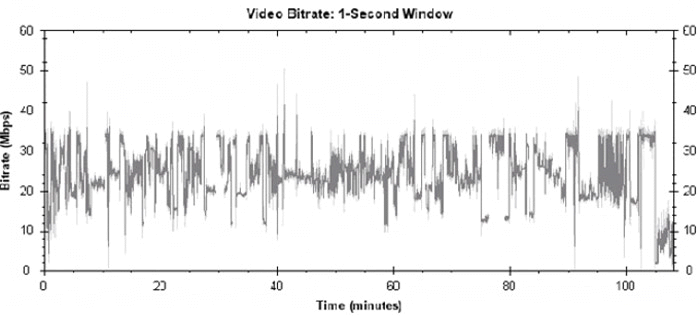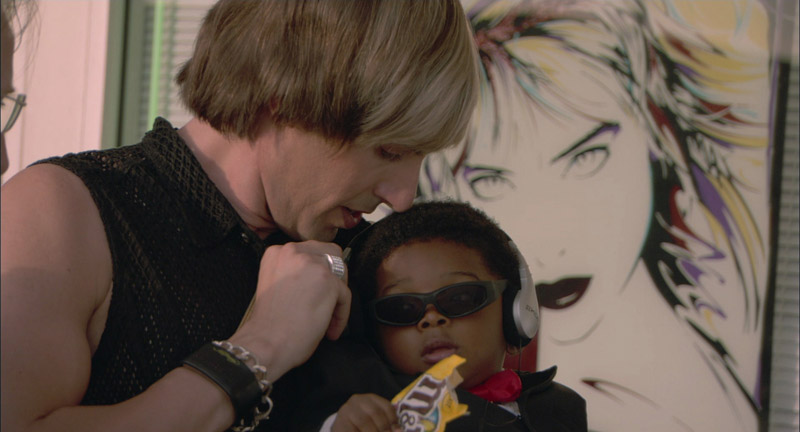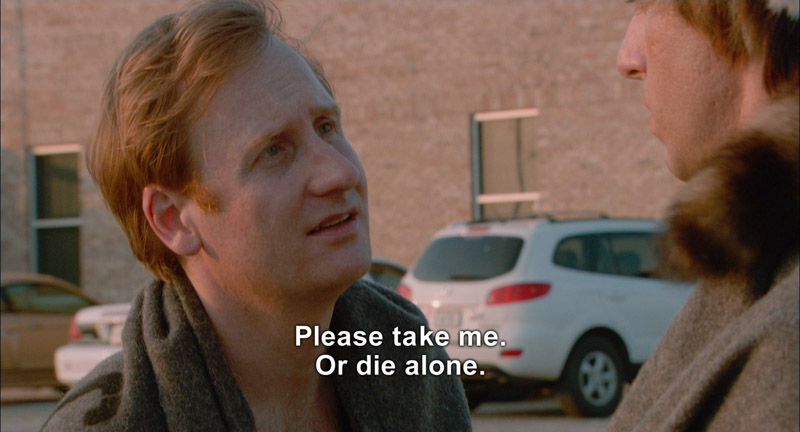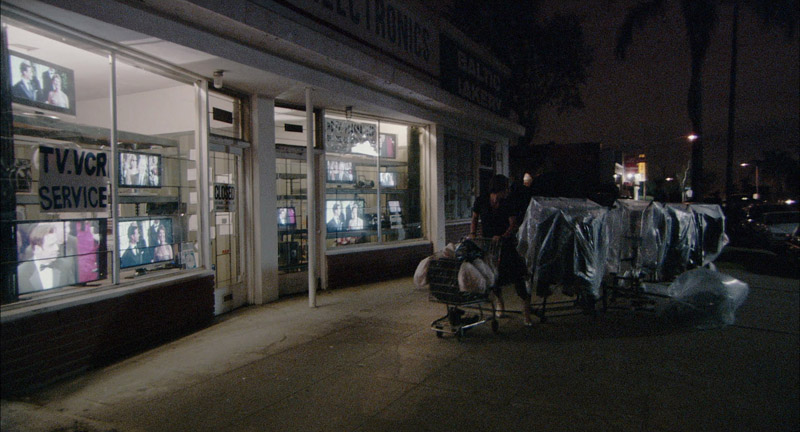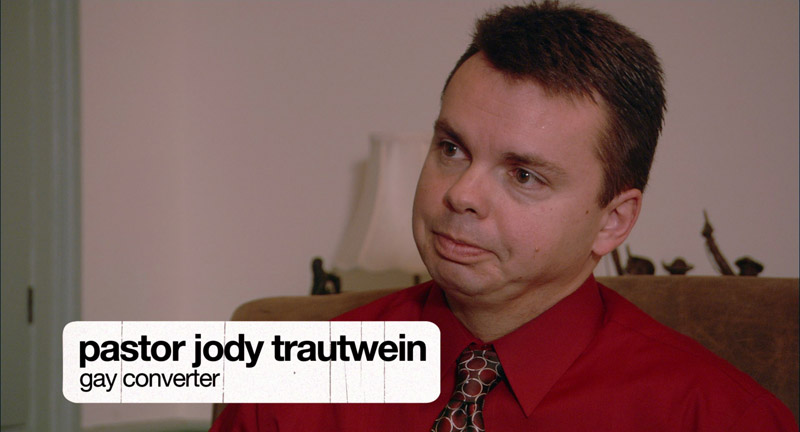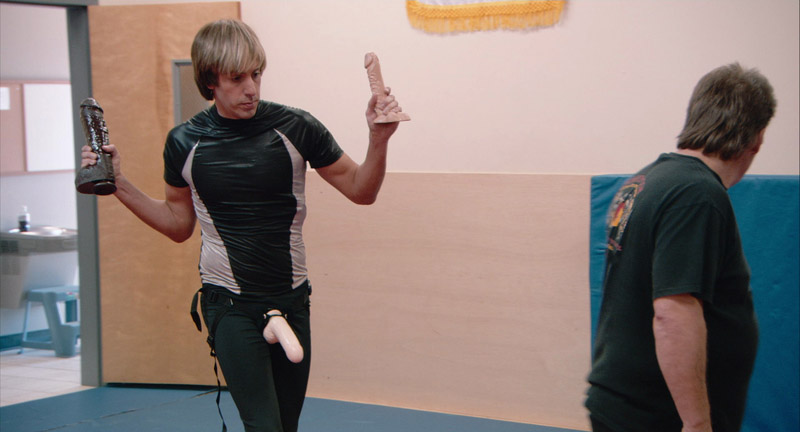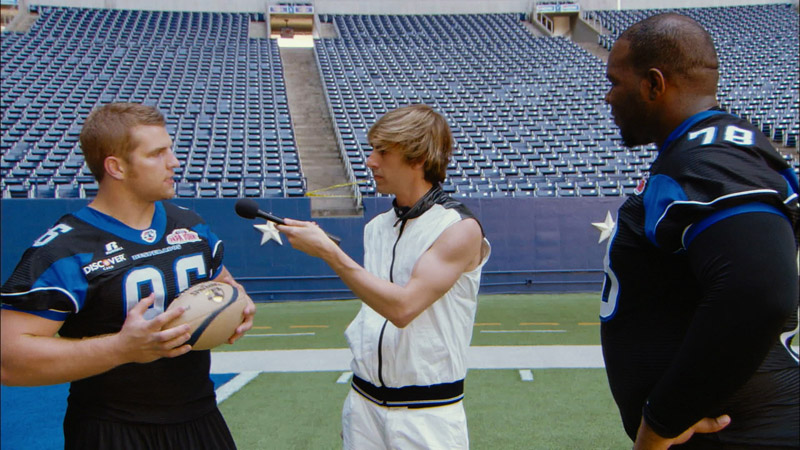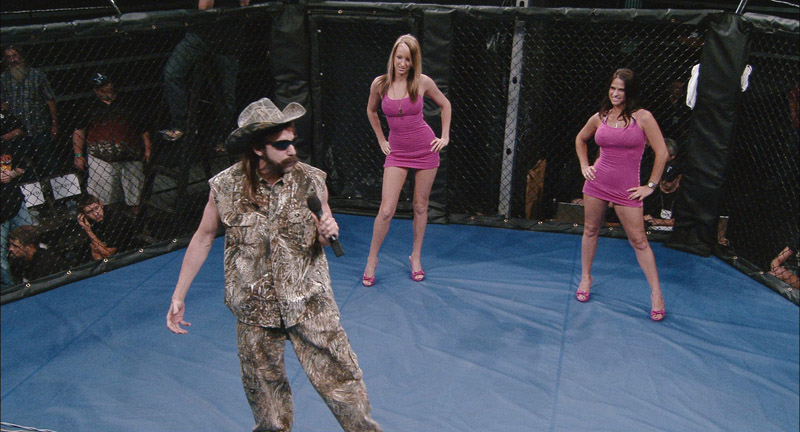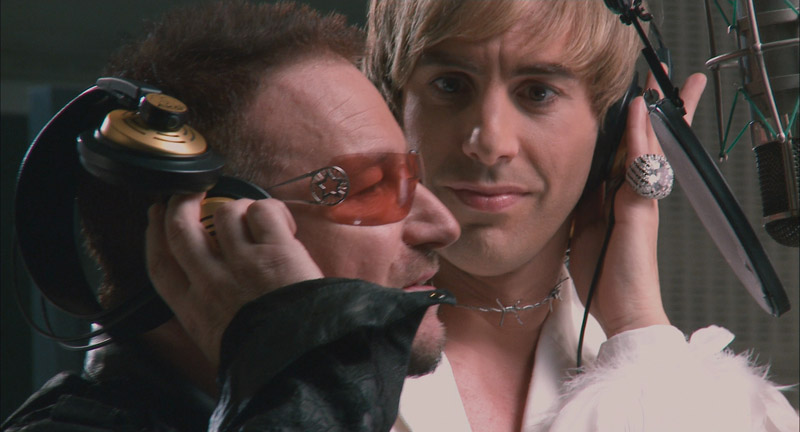Review by Leonard Norwitz
Studio:
Theatrical: Four By Two & Everyman Pictures
Blu-ray: Universal Studios Home Entertainment
Disc:
Region: FREE!
(as verified by the
Momitsu region FREE Blu-ray player)
Runtime: 1:48:09
Disc Size: 41,554,387,775 bytes
Feature Size: 25,910,347,776 bytes
Video Bitrate: 24.10 Mbps
Chapters: 20
Case: Standard Blu-ray case with slipcover
Release date: November 17th, 2009
Video:
Aspect ratio: 1.85:1
Resolution: 1080p / 23.976 fps
Video codec: MPEG-4 AVC Video
Bitrate:
Audio:
DTS-HD Master Audio English 3741 kbps 5.1 / 48 kHz / 3741
kbps / 24-bit (DTS Core: 5.1 / 48 kHz / 1509 kbps / 24-bit)
DTS Audio French 768 kbps 5.1 / 48 kHz / 768 kbps / 24-bit
DTS Audio Spanish 768 kbps 5.1 / 48 kHz / 768 kbps / 24-bit
Dolby Digital Audio English 192 kbps 2.0 / 48 kHz / 192 kbps
/ Dolby Surround
Dolby Digital Audio English 192 kbps 2.0 / 48 kHz / 192 kbps
Subtitles:
English (SDH), English,
French, Spanish,
none
Extras:
• Bonus View Enhanced Commentary PIP with Director Larry
Charles and Sasha Baron Cohen
• Alternate Scenes – (5:42)
• Deleted Scenes – (40:45)
• Extended Scenes – (22:39)
• An Interview with Lloyd Robinson – (5:32)
• Digital Copy Disc
The Film:
8
I remember seeing huge posters for this movie in the theatre
– it was something like the way The Truman Show was
advertised. Maybe that was part of the joke. If you've seen
Borat then you have an idea of what's in store for, but, as
the ad says: "Borat was so 2006!" Once again Sacha Baron
Cohen plays a flamboyant character in a faux-documentary
movie about a man in search of prejudice – and finds it.
Borat, the character, was racism and all the other "isms"
writ large, but Brüno turns this on its head, for it is
those he "interviews" or is interviewed by who come off as
narrow in spirit and humanity regardless of their advertised
persona. In short, prejudice is simply socially acceptable
hate, and homosexually the last remaining socially
acceptable prejudice.
Brüno is the host of an Austrian TV show called Funkyzeit,
where high fashion and what is or is not fashionable is laid
bare and laid waste by its arbitrary host. When he is fired
for disrupting a fashion show in Milan, Brüno goes on a
quest for even greater celebrity, starting with making a
pilot for a celebrity interview show in which he critically
comments on a celebrity's fetus. As in Borat he finds his
way to the United States where he tries to get a talent
agent (Lloyd Robinson) to make him an "overnight star;" he
adopts a black African baby to take advantage of the charity
business; he interviews presidential hopefuls (real ones,
like Ron Paul); he interviews Dallas Cowboys, goes out
shooting with rednecks, tries to covert to heterosexuality,
even joins the Army. Despite his over-the-top gay persona,
he is always taken seriously until the bubble bursts and
homophobia kicks in.
Given that hardly any of his fellow "actors" is in on the
premise or his character, Cohen occasionally flirts with
bodily harm as anger and rage boils over. It is not that
anyone feels taken in by the filmmakers as might be the case
in a Candid Camera situation, but that Brüno is finally
revealed to them in all his flaming gayness, something
which, though obvious to us, is ignored by them – or rather
that they feel violated by their own rule to not allow
themselves to get that close to a homosexual, and when they
are unable to rationalize or excuse Brüno any longer, they
pop. When Brüno wanders naked to the tent of a redneck in
the middle of the night, we wonder that Cohen isn't shot on
the spot. (Hopper and Fonda were blown away for far less.)
It is this subtext that makes Brüno so fascinating, and what
makes the movie with "enhanced commentary" essential
viewing.
There is a plot to the movie, and one that makes for
interesting counterpoint to the prejudice that Brüno
encounters – namely, his own homophobia, or, more exactly,
when love's opportunity stares him in the face, he chooses
the opportunity for celebrity. It's a story that
reverberates with most men regardless of any of the
generally accepted persuasions: that we would rather hunt
than stay at home, rather dream of loving than love.
Image:
7/8
NOTE:
The below
Blu-ray
captures were ripped directly from the
Blu-ray
disc.
The first number indicates a relative level of excellence
compared to other Blu-ray video discs on a ten-point scale.
The second number places this image along the full range of
DVD and Blu-ray discs.
By necessity, if not artistic choice, the movie is shot on
HD video instead of film and so there is an immediacy, but
also an electronic feel to the image. There are scenes of
stunning sharpness and richness of color alternating with
some serious noise issues (note the nighttime shot with the
shopping carts.) As common with HD Video transfers, I found
no other manipulations that weren't inherent in the source.
CLICK EACH
BLU-RAY
CAPTURE TO SEE ALL IMAGES IN FULL 1920X1080 RESOLUTION
Audio & Music:
7/8
For all its improvisatory and offhand qualities, it is
something of a surprise that the dialogue, which is what we
want to hear after all, so clearly materializes in the front
channels. The surrounds are engaged primarily for the music
and the occasional effect (like the audiences at the TV show
and for the cage fight.)
Operations:
7
A comment about the subtitles: When the dialogue is more or
less in German – and there's a good deal of this –
translation subtitles are automatic and not removable. On
the other hand, there are no German subtitles for the movie.
The menu is laid out like other Universal Blu-rays. Arrows
tell you which way to direct your remote, and the bonus
feature instructions are detailed and intuitive. Bonus View
is intuitive, though the menu, which is in German with
English on the side, takes a moment to get used to. I will
continue to rag Universal for its lack of any kind of disc
art – a point off.
Extras:
10
It's not often that I give a full "10" points for the Extra
Features, but in this case, Universal has provided what I
feel is the best option for watching a movie with commentary
– something I don't recall having seen before: simply to
have the commentators place the movie on pause while they
elaborate on a point. For a movie like Brüno, this is
particularly valuable since the humor is both subtle and
bold, splitting our brain functions in different directions.
It would be the rare viewer who could manage to take in the
movie and a commentary at the same time for very long. Since
the filmmakers are in control of the pause function, not us,
the enhanced commentary cut of the movie takes 26 minutes
longer than the "theatrical cut." Presented in PIP Bonus
View, Director Larry Charles, who looks like someone out of
ZZ Top, and Cohen, who, out of character, kept reminding me
of Ben Stiller, only funnier and more deadpan, pop up
frequently to expand on the background to their movie and
how they narrowly escaped, or didn't, attack and jail.
The Deleted Scenes (or, to paraphrase the menu: the
"Exterminated" Scenes) and Extended Scenes are as funny as
anything that was kept in the movie (for a change) and very
much worth our time. There's even a bit with La Toya
Jackson. The interview with Robinson is fascinating for the
reveal of his opinion of SBC.
|
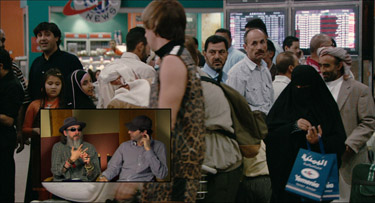 |
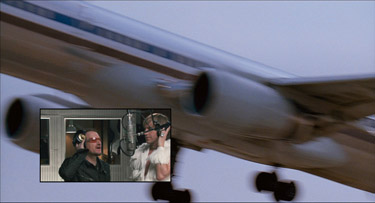 |
Bottom line:
8
With a movie that contains something to offend everyone, it
is surprising that Brüno has substance – and many will find
that it doesn't, or, that even if it does, that the
offending parts are simply toooo much. While the twirling
penis, dueling dildos, and various sex toys may be more than
some can handle, others won't be able to get enough of it.
In any case these are passing fancies compared to the big
picture. Sasha Baron Cohen may or may not be an acquired
taste, but he is nothing if not a fascinating artist, a
vigilante, a terrorist, and probably certifiable.
Leonard Norwitz
November 14th, 2009
![]()
![]()

![]()
![]()
![]()
![]()

![]()
![]()


